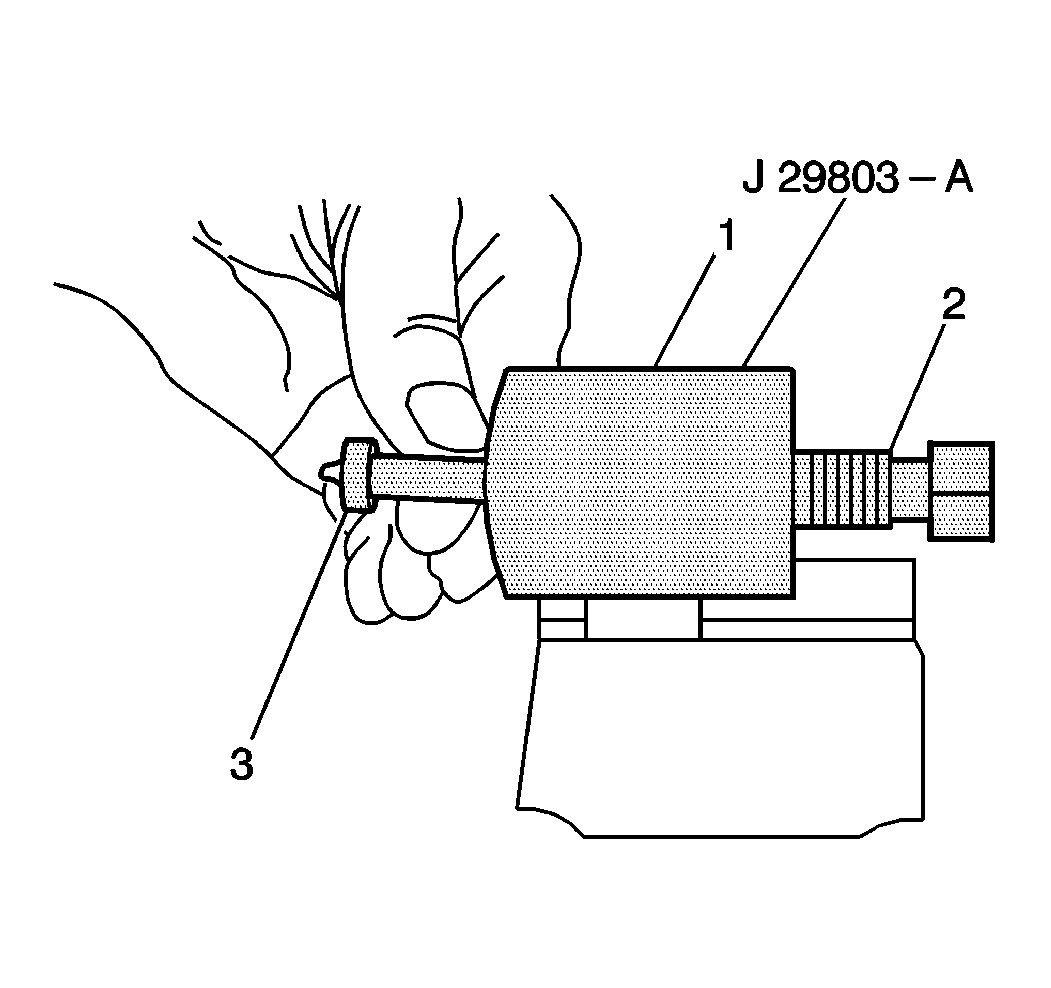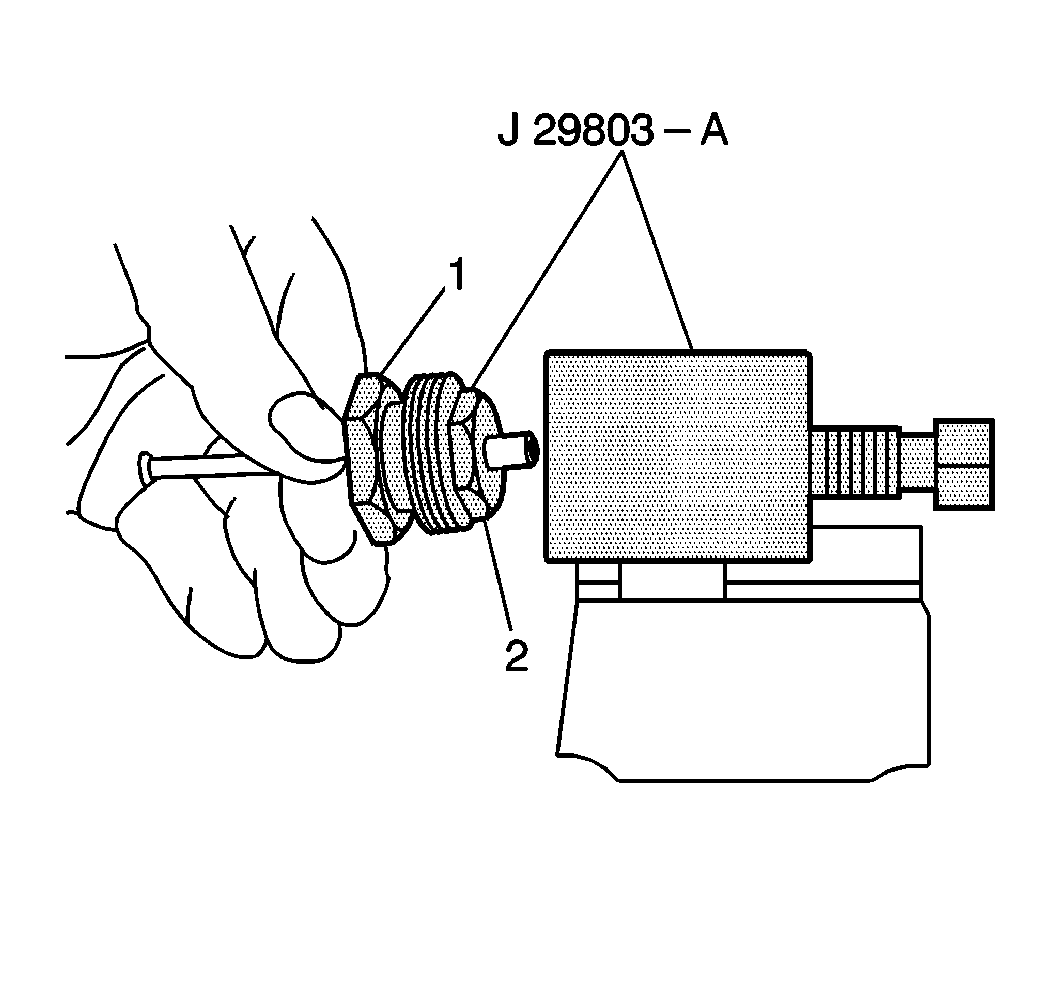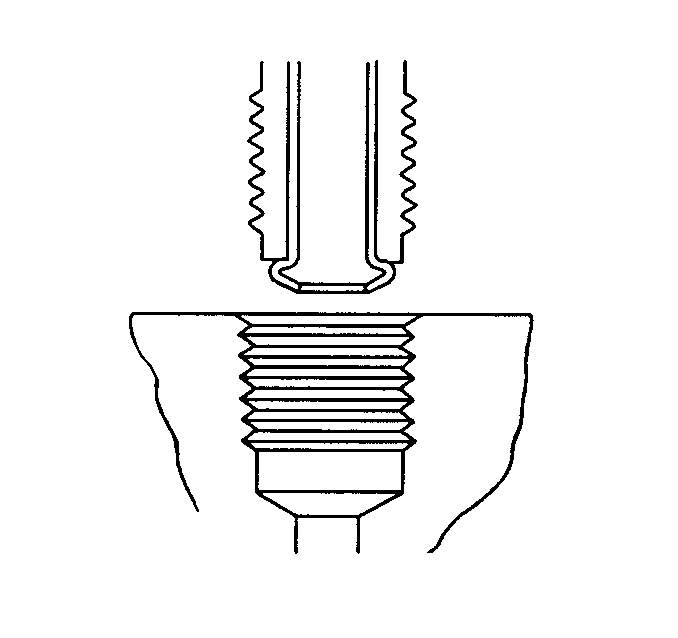For 1990-2009 cars only
Repair Procedure
Tools Required
J 29803-A ISO Flaring Tool
- Obtain the recommended piping (bulk tubing) and steel fitting nuts of the correct size. The outside diameter of the piping is used to specify the size.
- Cut the piping to length. The correct length may be determined by measuring the old pipe using a string and adding 3 mm (0.118 in) for each ISO flare.
- Make sure the fittings are installed on piping before starting flare. Flare the pipe ends using J 29803-A
- Remove the burrs from the inside and outside diameter of the pipe with the de-burring tool.
- Remove all traces of lubricant from the brake pipe and flaring tool (1).
- Clamp the flaring tool body in a vise.
- Select the correct size collet (2) and forming mandrel for the pipe size used.
- Insert the proper forming mandrel into the tool body. While holding mandrel in place with your finger, thread in the forcing screw until it makes contact and begins to move the forming mandrel. When contact is made, turn the forcing screw back one complete turn.
- Slide the clamping nut (1) over the brake pipe into the correct collet. Leave approximately 19 mm (0.075 in) of pipe extending out the collet. Insert the assembly into the tool body. The brake pipe end must contact the face of the forming mandrel.
- Tighten the clamping nut into the tool body very tight or the pipe may push out.
- Wrench tighten the forcing screw in until it bottoms. Do not tighten the forcing screw or the flare may become over-sized.
- Back the clamping nut out of the tool body and disassemble the clamping nut and collet. The flare is now ready for use.
- Bend the pipe to match the old pipe using a tubing bender. Clearance of 19 mm (0.750 in) must be maintained from all moving or vibrating parts.



